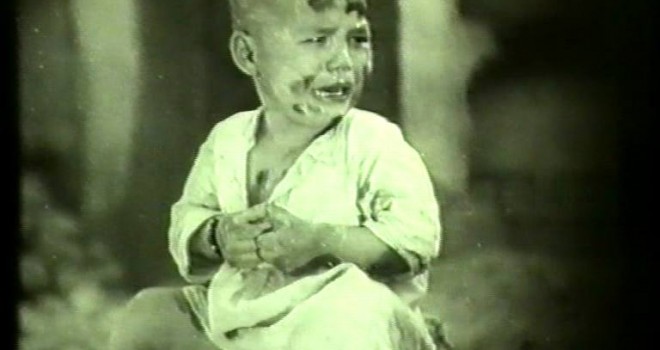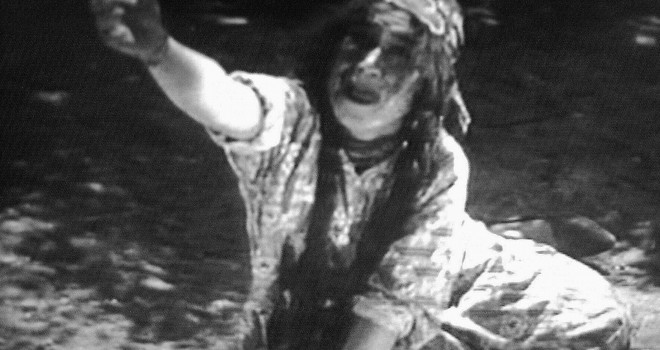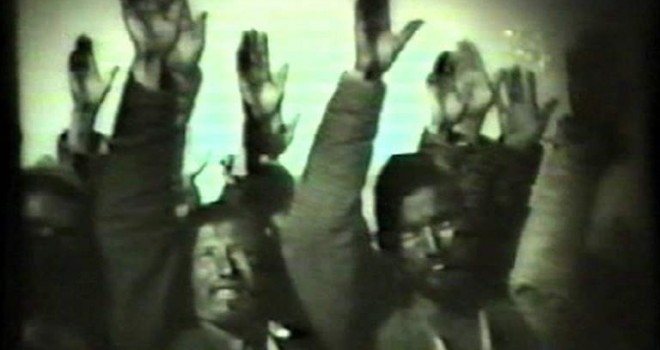The Soviet silent film era in the 1920s and 1930s is little known, and when it is, there is more research made on major authors and well-known films, mostly reflecting the dynamics of Russian or Ukrainian productions. This author-focused perspective, presenting an overrepresentation of great filmmakers such as Eisenstein, Pudovkin and Vertov, and largely focused on the European world, unfortunately obscures a large part of the production coming from other regions of the Soviet Union, and Central Asia in particular. It is precisely during this period that Uzbekistan and Tajikistan witness the birth of the first filmmakers. Some of them will disappear in the “Red Terror”, others will become the “founding fathers” of the postwar national cinema.
This essential moment of Central Asian film genesis is the subject of the program « Le muet d’Asie centrale prend la parole. » On one hand we wish to highlight a periphery soviet region, far away from decision-making authorities and central power, but we also wish to better understand how these countries made theirs the object-film and how they used it. And eventually how those national cinematographies were born. As a bridge with the past, this year Festival program will concentrate on three directors who then reflected, each one on his own way, a special trend in local production. The Festival will pay tribute to Suleiman Khojaev (1897 – 1937) who unfortunately passed away far too early, Kamil Yarmatov (1903 – 1978) “founding father” of Tajik cinema who has also been working for many years in Uzbekistan, and Oleg Frelikh (1887 – 1953) who directed several films in Central Asia, in the Caucasus or in Moscow.
After the presentation in previous editions, of retrospectives focused on Kazakh and Kyrgyz movies, it is now the Festival des 3 Continents mission to continue exploring into the unfamiliar and rare cinema of this region traveling back in time in order to deal with Uzbekistan and Tajikistan,(a very singular experience of silent movies in a Muslim country). This exceptional three Oriental silent movie program is projected to be seen with a traditional musical accompaniment by three traditional musicians to make the Nantes 2009 festival goers live a close as possible experience to that experienced by the Uzbekistan audience during the 1920s and 1930s. This aspect gives its full dimension to this once-in-a-life program and offering a unique approach to this forgotten cinema.
Cloé Drieu
Expert on central Asian Cinema History





